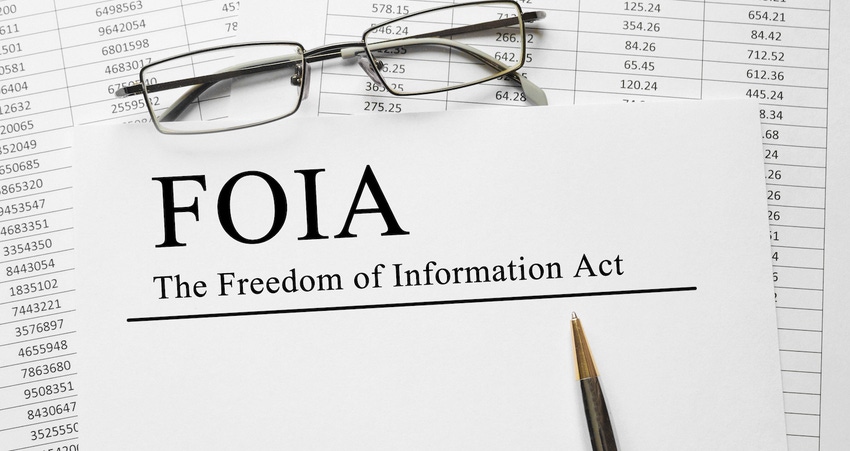The Alliance for Natural Health USA has requested info regarding FTC’s latest health claims guidance. The guidance is having a chilling effect on the free dissemination of data, the group claims.

The Alliance for Natural Health USA (ANH-USA) has filed a documentation request with the Federal Trade Commission to investigate whether information that supports the efficacy of natural products is being withheld from consumers.
The group, which joined the International Alliance for Natural Health network in 2009, announced Monday it had filed a Freedom of Information Act (FOIA) request to the FTC, over concerns that the agency in 2022 guidance is attempting to impose drug standards on dietary supplement products by requiring randomized controlled human clinical testing to substantiate advertising claims.
FOIA request aims to reestablish free flow of data
The stated purpose is to “investigate concerns that the FTC’s recent guidance will have the effect of limiting consumer access to vital scientific information about the benefits of dietary supplements and other natural products.”
“This new policy is the culmination of many years of work on the part of federal agencies to block Americans from learning about how to manage their health with natural products rather than FDA-approved drugs,” the group says on its website.
"We’re facing a government-led campaign to conceal the remarkable truth about the healing and disease-preventing powers of foods and nutrients, ultimately misleading the public so that they spend their money on drugs rather than natural supplements," said Robert Verkerk, Ph.D, executive director of ANH-USA, in a June 12 press release announcing the FOIA request.
Verkerk, who holds a doctorate in agriculture, founded the original chapter of the group in the UK in 2002. He stepped into the leadership role at ANH-USA in April 2023, replacing longtime executive Gretchen DuBeau.
Seeking civil penalties based on language in letters
The “Health Products Compliance Guidance” the group referenced in its statement was made public by FTC in December 2022. The guidance supplanted an earlier one that had been in place since 1998.
In April, FTC sent letters to hundreds of advertisers, including dietary supplement firms, based on the concepts in the guidance. The letters warned the firms not to make claims that are not substantiated with sufficient evidence.
The notices were sent to marketers of OTC drugs, homeopathic products, dietary supplements and functional foods. FTC cautioned a firm’s inclusion on the list doesn’t suggest it engaged in deceptive or unfair conduct.
According to FTC, this was the fourth time the Commission had sent out a similar raft of letters since the U.S. Supreme Court in 2021 ruled on the AMG Capital Management et al. v. Federal Trade Commission case. That ruling eliminated FTC’s ability to seek monetary relief under Section 13(b) of the Federal Trade Commission Act.
In sending the letters, however, FTC said it can levy up to $50,120 in civil penalties per violation for firms that have already been warned about engaging in certain behavior as outlined in the notices. One former FTC Commissioner even referred to the idea as a “13(b) fix.”
Legal underpinning of practice has yet to be tested
The idea has not yet been tested in court. Attorneys Katie Bond and Samuel Butler of the firm Keller and Heckman wrote in Natural Products Insider that the idea “is likely not as legally substantiated as FTC would have you believe.”
Whether or not the practice could survive an eventual court challenge, Bond and Butler said supplement companies need to be hypervigilant about the claims made on their products. “It is important to remain aware of how aggressive the agency has become, generally, in claim substantiation cases, particularly against dietary supplement companies,” they wrote.
Chilling effect of drug-like evidence standard
ANH-USA claims FTC’s new guidance applies a drug standard of proof for claims associated with dietary supplements. As the kind of multi-center clinical trials this guidance would call for are punishingly expensive, the standard would have a chilling effect on the dissemination of valid scientific data about dietary supplements, the group contended.
"This is really a backdoor ban on supplement health claims,” Verkerk said. “Clinical trials are incredibly expensive, but pharma companies can afford them because drugs are patentable and the costs can be recouped after the drug is licensed and sold for exorbitant prices. Nutrients generally can’t be strongly patented, so the costs of clinical trials can’t be recouped.”
In addition to advocating for access to natural products as part of consumers’ self-care regimens, Verkerk has also expounded on using electromagnetic frequencies for medicinal purposes and has railed against vaccine mandates.
FTC spokesman Mitchell Katz told Natural Products Insider that FTC has a policy of not commenting on FOIA requests.
Read more about:
Supplement scienceAbout the Author(s)
You May Also Like






.png?width=800&auto=webp&quality=80&disable=upscale)